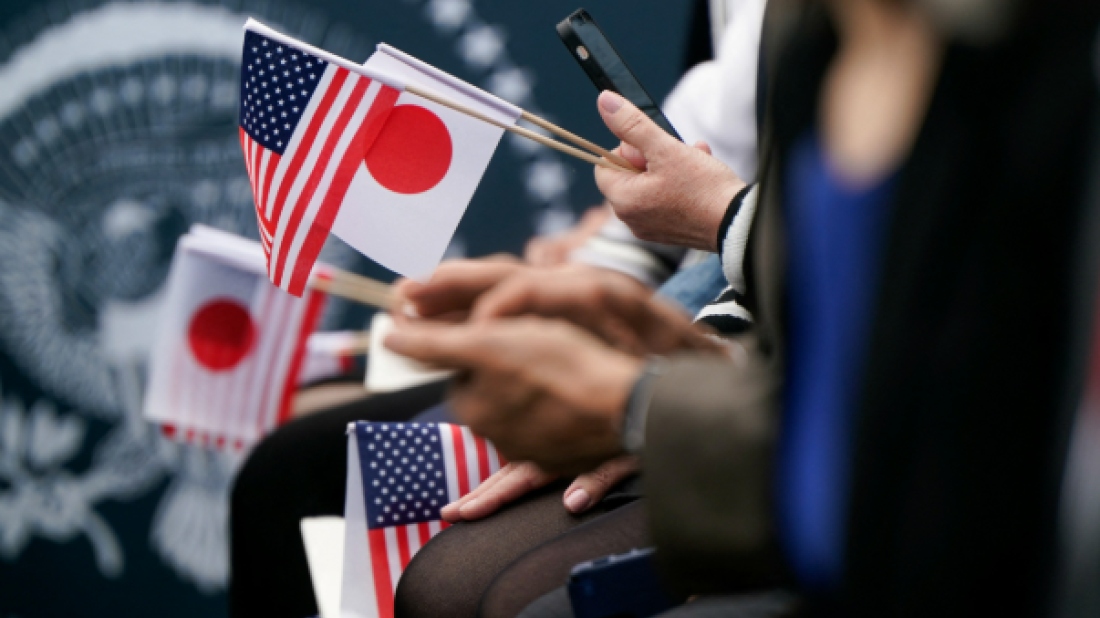Armenia’s cabinet approves military-technical cooperation agreement with Poland
The Armenian Cabinet has approved a military-technical cooperation agreement (MTC) with Poland, which will be forwarded to parliament for ratification...

The United States and Japan reached a major trade deal to cut auto tariffs to 15% and unlock $550 billion in Japanese investment, averting new levies ahead of the 1 August deadline set by President Donald Trump
The US and Japan have finalised a sweeping trade agreement that slashes tariffs and commits Tokyo to $550 billion in US-bound investment and loans, offering significant relief to Japan’s auto industry ahead of looming tariff hikes.
President Donald Trump hailed it as “the largest TRADE DEAL in history with Japan,” writing on Truth Social that it reflects the strong relationship between the two allies.
The agreement reduces existing 25% auto tariffs to 15% and cancels a new round of levies on Japanese goods that were due to take effect on 1 August.
Autos represent more than 25% of Japan’s exports to the U.S. and the announcement sparked a surge in Japanese markets, with the Nikkei index rising 2.6% and carmaker stocks gaining sharply. Toyota shares jumped more than 11%, while Honda and Nissan rose more than 8%.
In addition to tariff reductions, the agreement includes a pledge by Japanese government-affiliated institutions to channel up to $550 billion into U.S. supply chains, particularly in sectors such as pharmaceuticals and semiconductors.
Prime Minister Shigeru Ishiba, facing pressure after losing his upper house majority, described the new tariff rate as “the lowest figure among countries that have a trade surplus with the U.S.”
Japan also agreed to increase purchases of American agricultural products, such as rice, though Ishiba insisted the deal would “not sacrifice Japanese agriculture.”
However, U.S. automakers voiced concern. The American Automotive Policy Council criticised the deal for favouring Japanese imports with low US content over North American-built vehicles, which still face 25% tariffs.
"Mission Complete," Japan’s lead negotiator Ryosei Akazawa posted on X after meeting Trump at the White House, confirming the deal does not cover steel or aluminium tariffs, nor defence spending commitments.
Two-way trade between the U.S. and Japan reached nearly $230 billion in 2024, with Japan running a $70 billion surplus. Japan remains the largest foreign investor in the U.S. with around $2 trillion in assets and $1.2 trillion in direct investment by the end of last year, according to the Bank of Japan.
Speaking at the White House, Trump said Japan was also ready to join a joint venture to support an Alaskan LNG pipeline, a project long backed by his administration.
With the 1 August deadline approaching, the Trump administration is racing to conclude deals. Framework agreements with the UK, Vietnam, and Indonesia are already in place, while negotiations with the European Union are due to continue in Washington this week.
The drumbeats have finally faded at the Marquês de Sapucaí, bringing the competitive phase of the Rio Carnival 2026 to a dazzling close. Over two marathon nights of spectacle, the twelve elite schools of the "Special Group" transformed the Sambadrome into a riot of colour.
Peru’s Congress has voted to censure and remove José Enrique Jeri Ore from his posts as President of Congress and acting President of the Republic, just four months into his tenure, citing undisclosed meetings with Chinese businessmen and alleged hiring irregularities.
France celebrated Olympic gold in the men’s biathlon relay in Anterselva on Tuesday (17 February), following a thrilling race marked by an electric atmosphere at the stadium.
Israel is preparing for the possibility of receiving a green light from the United States to launch strikes against Iran’s ballistic missile system, according to Israel’s public broadcaster KAN.
Aghdam’s Qarabag FK experienced a 6–1 defeat to England’s Newcastle United in the first leg of their UEFA Champions League play-off tie in Azerbaijan's capital Baku Wednesday evening (18 February).
Iranian and Russian navies staged a joint exercise in the northern Indian Ocean on Thursday, as Washington builds up its military assets in the region, including deploying warships near Iran, despite renewed indirect nuclear negotiations with Tehran.
Britain's King Charles III has stressed that “the law must take its course” after his brother, Andrew Mountbatten-Windsor, was arrested on suspicion of misconduct in public office, insisting a full, fair and proper investigation be carried out by the appropriate authorities.
The Trump administration has given immigration officers wider powers to detain legal refugees awaiting green cards, ordering their return to custody for renewed vetting one year after entering the U.S.
Peruvian lawmakers elected Jose Balcazar as the country's new interim president on Wednesday (18 February) ahead of general elections in April.
The Telegram messaging app has dismissed allegations by the Russian government that its encryption has been breached by foreign intelligence services saying that it's not found any breaches of its encryption.
You can download the AnewZ application from Play Store and the App Store.

What is your opinion on this topic?
Leave the first comment